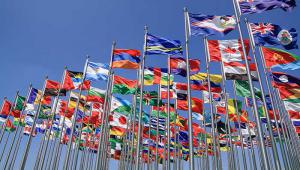Going universal : how 24 developing countries are implementing universal health coverage reforms from the bottom up, looked at how countries have expanded access to health care for poorer people.
Tim Evans, senior director of health, nutrition and population at the World Bank Group, sad universal health coverage was a triple win.
“It improves people’s health, reduces poverty and fuels economic growth,” he said.
“The report highlights how far many countries are on the path to universal health coverage, but it also shows how far many still have to go to ensure that the poorest have access to essential health services and are protected from health expenses that cause them severe financial hardship.”
Some 400m people do not have access to essential health services, the report noted, and 6% of those in low and middle-income countries were pushed further into extreme poverty because they could not afford the health spending they needed.
The report looked at how policy makers had tackled widening covering of people, expanding benefits, managing money, improving the supply of health care services and strengthening accountability.
They found the programmes studied were “new, massive and transformational”.
Most had been launched in the past decade, covering more than 2bn people in all, and were fundamentally changing the way health systems operate by overcoming gaps in the financing and coverage of services that disadvantaged the poor.
It concluded that universal health coverage required greater investment that both helped poor people while also being fiscally sustainable.
Both the World Health Organisation and the World Bank Group recommend that countries pursuing universal health coverage should aim to provide at least 80% of their population with essential health services, and that all should be protected from impoverishing health payments.
The countries studied were: Argentina, Brazil, Chile, China, Columbia, Costa Rica, Ethiopia, Georgia, Ghana, Guatemala, India, Indonesia, Jamaica, Kenya, Kyrgyz Republic, Mexico, Nigeria, Peru, Philippines, South Africa, Thailand, Tunisia, Turkey and Vietnam.













